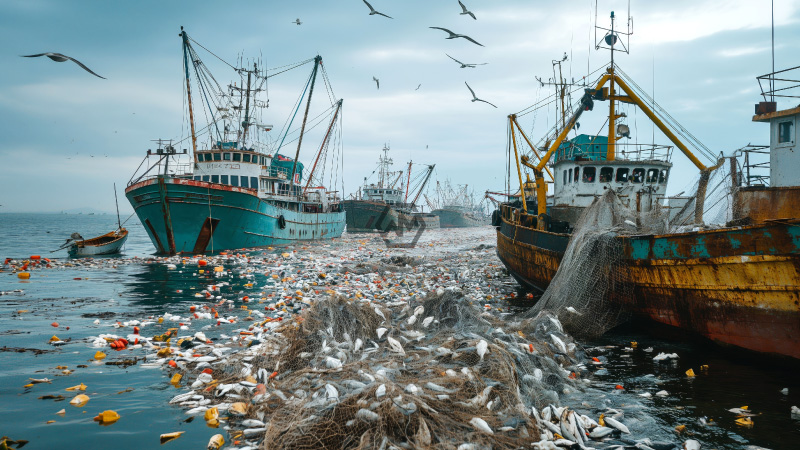- New Findings: U.S. seafood waste estimated at 22.7%, lower than previous FAO estimate of 50%.
- Study Focus: UF/IFAS research provides detailed analysis by species and supply chain stages.
- Implications: Highlights the need for targeted solutions to reduce waste and improve sustainability.
A recent study by UF/IFAS has significantly revised the estimated seafood waste in the U.S., bringing it down to 22.7% from the previously cited 50%.
This new figure is the result of a more granular analysis that considers variations in seafood species, production methods, and stages in the supply chain.
Updated Seafood Waste Figures: New Study Challenges FAO Estimates
The study reveals that waste occurs primarily at the production and consumption stages, with the highest rates of loss observed during home cooking. Additionally, the research underscores that high-income countries contribute disproportionately to seafood waste. To address this issue, the study suggests that improvements in aquaculture practices, better cold chain management, and enhanced consumer education on seafood perishability are essential for reducing overall waste.
The research highlights that physical losses are most significant at the production stage, while quality losses occur mainly during production and processing. The study also identifies high waste rates at the consumer level, particularly during home meal preparation. These findings emphasize the need for targeted interventions, such as improving cold chain management, disease prevention in aquaculture, and consumer education on seafood handling.
Addressing seafood waste requires a dual approach, focusing on both production and consumption. On the production side, better water quality management, disease control, and hatchery improvements can reduce losses. For capture fisheries, monitoring bycatch and enhancing cold chain strategies are crucial. On the consumer side, increasing awareness about seafood perishability and proper meal planning can help mitigate waste.
Reducing seafood waste is vital for enhancing global food security and sustainability. The study underscores the importance of accurate data to drive effective policies and interventions. By implementing targeted solutions across the supply chain, the seafood industry can become more sustainable and contribute to better resource management amid growing environmental and economic challenges.
The UF/IFAS study offers a more accurate assessment of seafood waste in the U.S., highlighting significant differences from previous estimates. Addressing seafood waste through improved practices and consumer education is crucial for promoting sustainability and ensuring global food security.
“Reducing waste is about more than just harvesting the right number of fish,” – University of Florida Institute of Food and Agricultural Sciences Professor James Anderson.



